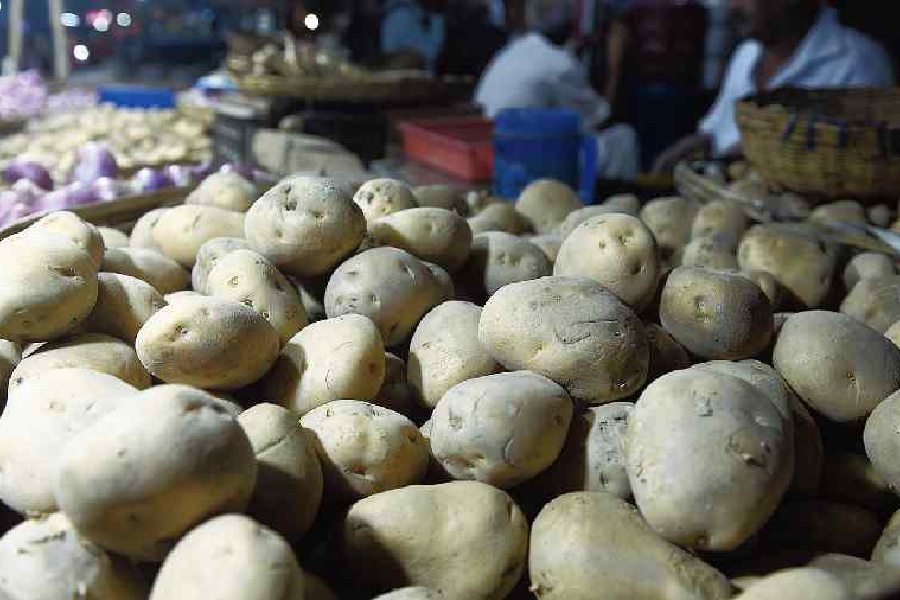The Bengal government has recently approved proposals for 17 new cold storage units across the state, which will help potato farmers store an additional 17,000 tonnes of the tuber.
"The proposals for the construction of 17 new cold storage units came during the BGBS (Bengal Global Business Summit) this year. We have recently approved all those proposals. These units will be built within two years," said a senior official in the agricultural marketing department.
Five cold storage units will come up in Cooch Behar. Two will come up in Jalpaiguri and Birbhum. Alipurduar, Murshidabad, North Dinajpur, East and West Midnapore, Bankura, East and West Burdwan will get one each.
Bengal produces around 90-100 lakh tonnes of potatoes in districts such as Hooghly, Bankura, Birbhum, East Burdwan in the south, and Jalpaiguri, Cooch Behar, North Dinajpur in the north.
Bengal currently has 588 cold storages across the state, which store roughly around 60 lakh tonnes of potatoes per season.
"Although farmers do not store all the potatoes they produce in cold storages, we have to increase infrastructure as the state government wants to focus on growing potatoes," said an official.
A source said despite there being a surplus in potato production last year, the farmers did not store their produce adequately and many of the 588 cold storage units could not store potatoes optimally.
Potato farmers and traders, however, said the state government should focus on a better market for potatoes.
"It is good that 17 new cold storage units will come up and it will help us store more of our produce. However, farmers can't sell their produce for a better price because of poor market options. We urge the government to take a look at new areas including outside Bengal to sell our produce," said Bibhas Dey, the president of Paschim Banga Pragatishil Aloo Byabyasayee Samiti, an outfit of potato farmers and traders in Bengal.
A senior state government official said Bengal produced 120 lakh tonnes last year, higher than the state's usual production of 90 lakh tonnes.
"The price was lower because of surplus production. But we monitor the market to control the price. If there is any fall in demand, the state buys potatoes directly to ensure farmers do not have to face losses," the official said.










